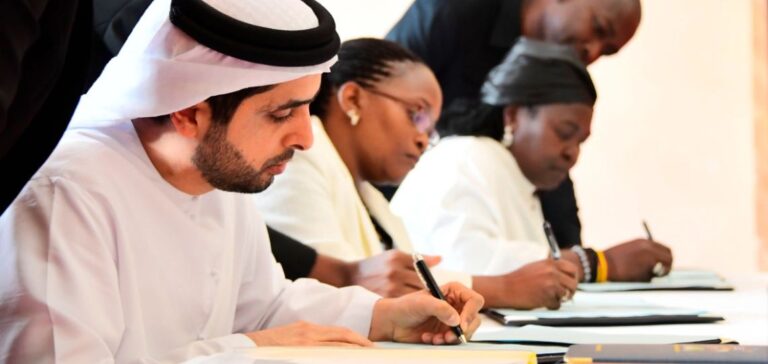Uganda has signed a decisive agreement with Alpha MBM Investments LLC, a company based in the United Arab Emirates, officially launching the implementation of the Hoima crude oil refinery. The project, under discussion for several years, will eventually refine up to 60,000 barrels of crude oil daily. Located near the Kingfisher oil field, this facility will be strategic in meeting the national and regional demand for refined petroleum products. According to official estimates, the refinery should significantly reduce the country’s reliance on imported fuel.
A key infrastructure for energy independence
The Ugandan government views this refinery as a decisive step toward greater energy sovereignty. The Hoima site was selected due to its proximity to major oil reserves, simplifying crude supply logistics. The project is also part of the regional energy development initiative in East Africa, including notably the East African Crude Oil Pipeline (EACOP). This pipeline will transport extracted hydrocarbons to the Tanzanian port of Tanga for export to international markets.
The overall cost of the project, which includes the refinery and related infrastructure, amounts to several billion dollars, funded by a combination of private capital and Ugandan public investments. The objective is also to stimulate the local economy, particularly by creating direct and indirect jobs associated with the construction and subsequent operation of the site. According to the timeline announced by authorities, construction should begin in the coming months, with commissioning planned within five years.
Economic stakes and regional cooperation
The agreement with Alpha MBM Investments LLC marks a significant turning point in Uganda’s economic strategy. The UAE-based company has committed to providing the technical and financial resources necessary for the smooth execution of the project. For Uganda, this international partnership reflects an ambition to attract further foreign investment in its energy sector, deemed strategic for the country’s long-term economic development.
The refinery is intended to supply refined petroleum products not only to the domestic Ugandan market but also to immediate neighboring countries, particularly Rwanda, Kenya, and Tanzania. This project is expected to enhance economic and energy integration in this region, historically dependent on fuel imports from other continents. Neighboring governments have already shown significant interest in this infrastructure, viewing it as crucial for stabilizing regional energy supplies.






















